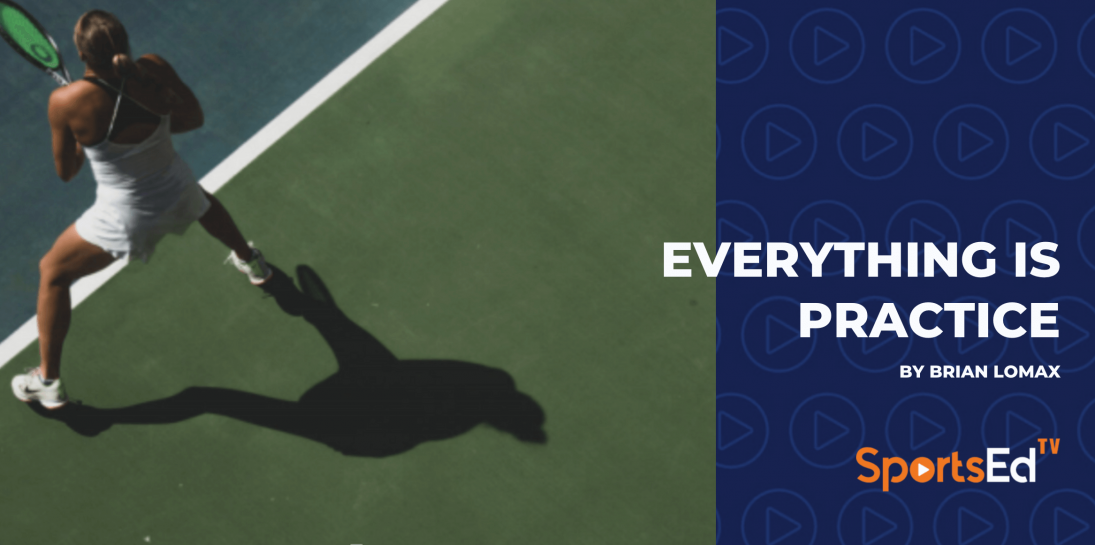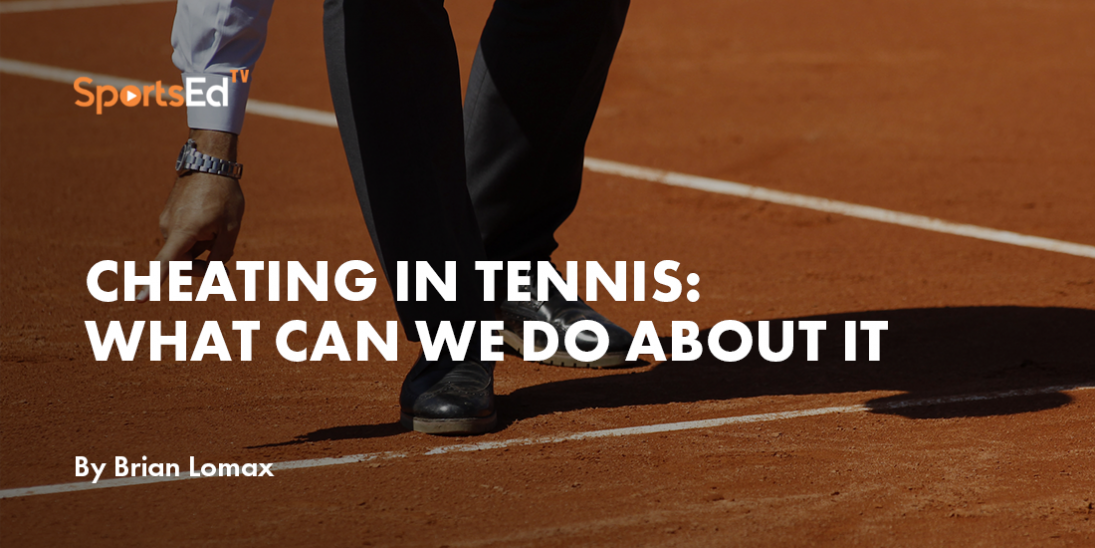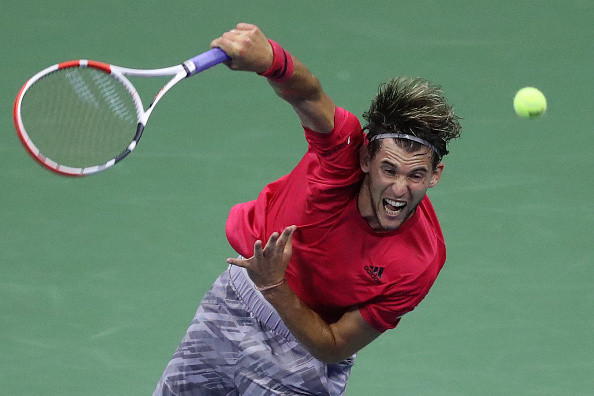Tennis
Welcome and thanks for visiting...

Everything Is Practice by Brian Lomax

If you’re like most people, you have probably noticed that you play better in practice than you do in competition. You may have even said something like the above quote to a coach, a family member, or to yourself. And it makes sense that most people play better in practice. There’s less pressure; there’s less on the line; there’s less to lose. Because of that, you play more freely, and things feel a bit easier. Your body isn’t as tense; your mind is clearer, and everything feels a little lighter. So if you want to play better in competition, the fix is simple – make EVERYTHING practice. Right?
But Everything Isn’t Practice
- Your first reaction to this is probably some combination of the following:
- No, that isn’t right.
- Competition counts for more.
- I have to play well in tournaments
- I want/need to win.
- People expect me to do well.
- Matches affect my UTR/NTRP.
Perhaps all of this is true. But how is this type of thinking working for you? It probably isn’t.
Can you see how thinking this way actually puts more pressure on you and gets in the way of playing well? If you truly play better in practice, then the answer to playing better in competition is right in front of you. It’s just a matter of being willing to adopt a perspective that lowers the pressure of the situation. Because that’s the key – to lower the pressure. Pressure is generally a barrier to good performance. Everything is practice might be the mantra that gets you to dial down the pressure to the point that you can play better.
Your New Motivation
In order to effectively adopt “everything is practice” as your new perspective, you need to prioritize a new long-term goal. This goal must be your North Star. It must guide all of your practice habits, training, routines, scheduling, etc. It must be what you are ultimately striving for in your career. The good news is that it is the same for all of us.
Your most important long-term goal must be to become the best tennis player/competitor that YOU can become. I emphasize YOU because we are all different. The best that I can become is different from the best you could become or the best that some other person could become.
If you can adopt this long-term goal as your most important goal, then you can look at tournaments and competitions in a whole new light. You can see other result-oriented goals differently. Winning tournaments and attaining rankings aren’t the pinnacle of your career; they are simply milestones on the journey to becoming the best that you can become.
To illustrate this, let’s say that playing college tennis is your “ultimate” goal. What happens when you reach that goal? Are you done? Do you stop training/competing? I had known several players who did react this way when they got into the college of their choice. They stopped practicing and competing so much. They felt the pressure was off; they had made it. Unfortunately, they were missing the point of why we pursue a sport like tennis. Getting into college should not be the end of the journey. And do you think their college coach was excited by the fact that their new recruit decided to stop competing?
To be clear, making a college tennis team is not a bad goal. Winning a tournament, a league, or attaining a certain ranking are also not bad goals. In fact, they are good goals. However, they are interim goals on the way to becoming your best. At best, they are milestones on your journey. They should not be your ultimate goal. College tennis gives you four years to improve even more, and then who knows what can happen after that. There will almost always be something else to play.
Pressure and Playing Your Best
When you create pressure for yourself with high expectations, thoughts of winning, fear of losing, and/or worrying about what other people think, you will notice certain consequences. Your muscles tense up; you either play more conservatively or rush and play too aggressively; you’re easily distracted; you struggle to control your emotions and reactions; your confidence decreases; the performance is not enjoyable. Most of these are probably familiar to you. The result of all of this is that your performance is sub-optimal. In fact, how you actually played is probably not the way you want to play or need to play in order to improve.
Let’s look at an example. Say you are a tennis player who struggles with the forehand under certain situations. When the match gets tight or feel pressure, you slice the shot rather than drive it. You’re afraid to hit it because you might make a mistake, and if you make a mistake, you’ll lose the point, and if you lose lots of points, you’ll lose the match, and then everyone will know you’re not a very good tennis player. Sound about right?
If you’re slicing your forehand, are you playing the way you want to play? Probably not. Therefore, what you are doing is perfecting a sub-optimal way of playing in matches. You are getting more repetitions of a forehand you don’t want to hit under pressure and fewer reps of the one you do. You’re not playing your “A” game. How can you ever become a great player if you don’t play your “A” game in competition?
Play Your “A” Game
Here is where it all comes together. If you want to become the best player you can become, you need to practice playing your “A” game. Getting more reps of your “A” game must become more important to you than winning on one particular day. You will learn and improve much more by playing your “A” game and making mistakes than by not playing your “A” game at all. In the first instance, at least you can make some adjustments to what you are trying to do. That process will help you to learn and improve. In the second instance, there’s nothing to adjust.
Competitions can now be viewed as opportunities to practice playing your “A” game and make progress on it. They are improvement opportunities. At the end of a competition, I want you to say that you competed the right way and that you got a little better at it. Trust me, if you lose a match or a game, nothing truly terrible will happen. Life will go on. There will always be another competition. So, why not make it your goal to play your “A” game, to play the right way? Plus, playing your “A” game is far more enjoyable than playing with fear.
Your potential is on the line every day, and every day that you choose to play with fear is another day/opportunity lost on your journey. You can change that by realizing that “everything is practice.” Look at your competitions/tournaments as opportunities to practice playing your best. These are opportunities to get closer to becoming the best that you can become. You will learn more and improve faster. And before you know it, you will be playing as well in competition as you do in practice because everything is practice.





